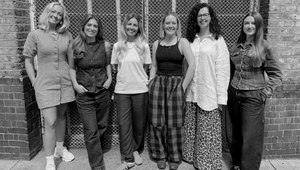
CPHFW … Fashion’s Hottest Ticket or Runway to Regulation?

Copenhagen Fashion Week returns this week, from 4–8th August, and it’s no longer just fashion’s best-kept secret. With its signature blend of Scandi style and sustainability swagger, CPHFW is now rubbing shoulders with the likes of Paris, London, and New York.
But as it racks up global attention, and as other cities, like London, consider adopting the CPHFW Sustainability Requirements, a bigger question looms:
Is the framework strong enough for one of the world’s most resource-hungry industries?
Earlier this year, Denmark’s Consumer Ombudsman challenged the requirements for lacking teeth, arguing the guidelines allow for vague sustainability claims with little enforcement. In an industry where impact is high and transparency low, the criticism feels less like a surprise and more like a warning shot.
And that’s just the beginning. Here's what’s heating up behind the runway:
Four Forces Reshaping Fashion Sustainability
1. France takes on ultra-fast fashion.
In a bold move, France passed its first-ever law targeting the likes of Shein and Temu. Think: eco-taxes, ad bans, and mandatory transparency around social and environmental impact.
2. The EU tightens the screws.
New regulation is coming in hot, from the Corporate Sustainability Due Diligence Directive (2026) to a revamp of textile labelling. The shift? From voluntary pledges to enforceable accountability across supply chains.
3. Governance gets a glow-up.
London College of Fashion’s Governance for Tomorrow (GfT) is rethinking the rules. Instead of top-down box ticking, it pushes for inclusive decision-making across the supply chain.
4. TikTok is the new watchdog.
So-called Eco-Tok creators like @venetialamanna and @slowfashionmom are dismantling greenwashing, overconsumption, and 'sustaina-spin' in real time, shaping how a new generation views ethics in fashion.
As compliance becomes less optional and more inevitable, the industry’s spotlight moments, including Fashion Weeks, will come under increasing pressure to walk the talk.
So the real question is:
How do we make sure sustainability isn’t just good storytelling, but a standard that sticks?















